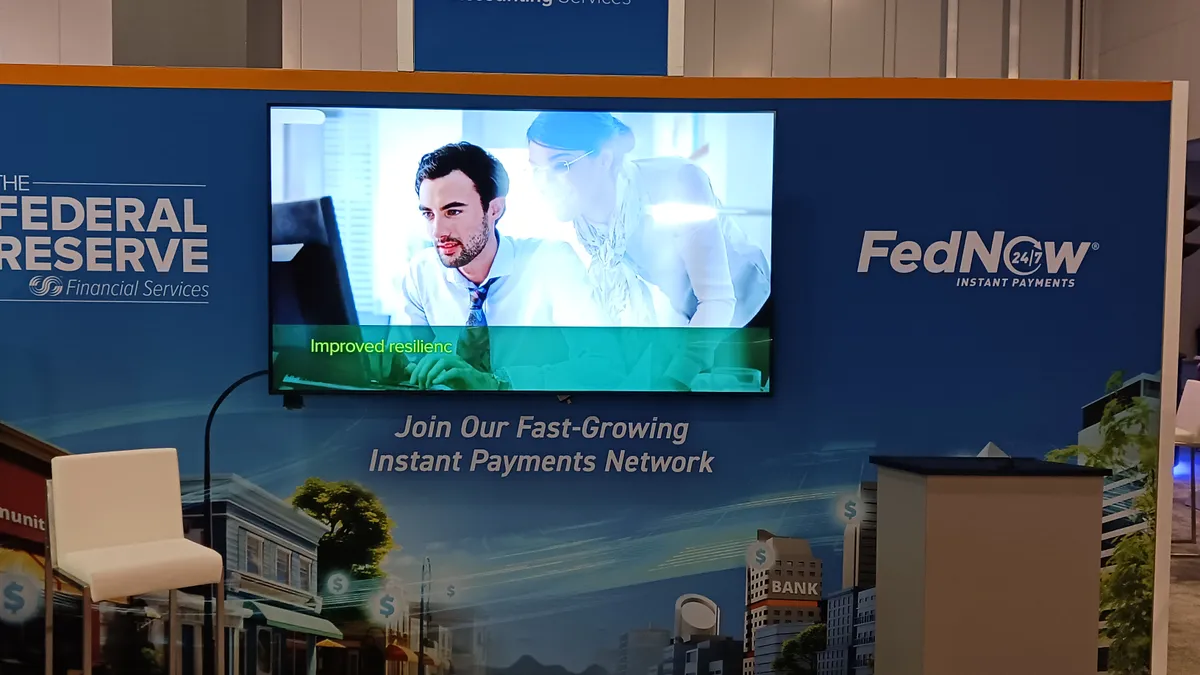Dive Brief:
- More than half (56%) of 88 financial institutions, payment providers, businesses and other entities surveyed by the U.S. Faster Payments Council said they have integrated faster payment technologies. Nonetheless, over a third (35%) said they haven’t integrated faster payments, but they plan to do so in the future, according to a report issued by the organization’s inclusion working group earlier this month. Almost one-tenth (9%) said they have no plan to add faster payment services.
- While 55% of the survey respondents said they don’t charge for faster payments, about a quarter (23%) of respondents said they charge payers a fee for faster payments. Another 13% charge the payee, and 10% charge both the payee and payer, the report said.
- Though nearly half (42%) of respondents said they allow customers to ask for a return of funds after an authorized transaction fraud, about a fifth (19%) said they don’t allow customers to make such requests, per the report. About a third (36%) of survey respondents said they didn’t know how they handled refund requests from authorized transaction fraud victims (3% didn't respond to the question).
Dive Insight:
The research report from the council adds context to the adoption of faster payments and authorized transaction fraud problem. The council’s board includes representatives from a variety of payments players, including the mega-retailer Walmart, card network Visa and the interest group The American Bankers Association.
The council, which has advocated for increased use of faster payments, comes about a year after the Federal Reserve launched the instant payments system called FedNow. A rival U.S. system, known as the RTP network, has been operated by The Clearing House since 2017. Both systems have only slowly attracted participation from banks as the U.S. seeks to catch up with some other countries in implementing faster systems.
The proportion of financial firms that don’t know how they respond to authorized transaction fraud suggests that more companies need to be made aware of the fraud category, the report said.
“The results show that while some progress has been made in addressing the factors needed to make faster payments financially inclusive, work remains to be done if most faster payment products are to be financially inclusive,” the group noted in its report. “Understanding what needs to be done and the size of gaps are key points to take away from the survey results.”
Other research suggests that fraud is expected to rise in the coming years. An ACI Worldwide report released last December predicts that authorized push payment fraud will surpass $3.03 billion by 2027, an increase from $1.94 billion in 2022.
Meanwhile, Zelle, a unit of parent company Early Warning Services, has been under scrutiny because of its fraud reimbursement policy. Earlier this year, Sens. Elizabeth Warren, Sherrod Brown and Jack Reed wrote an open letter to EWS CEO Cameron Fowler regarding Zelle’s fraud and scam reimbursement practices. In May, the Senate Committee on Homeland Security & Governmental Affairs’ Permanent Subcommittee on Investigations held a hearing during which consumer advocates and members of Congress called for the company to reshape its fraud and scam reporting process and improve its reimbursement practices.










